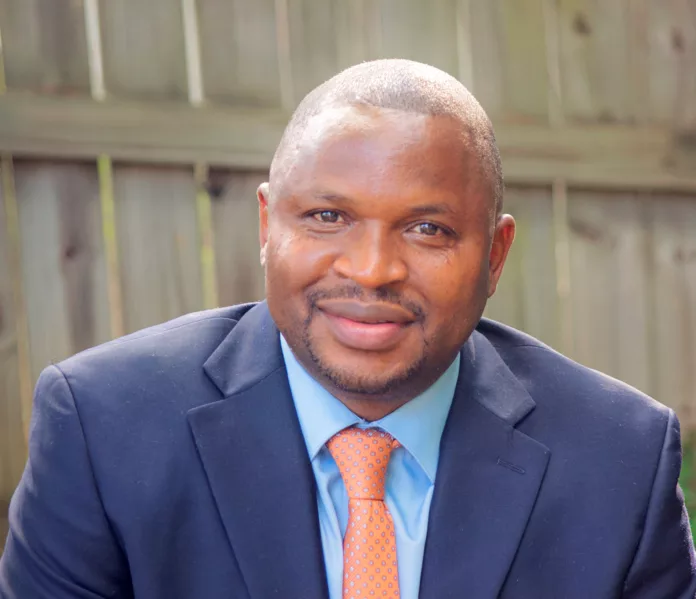The unfailingly abiding emotional investment I have in the wellbeing of common people springs forth from my experiential and mediated identification with the twinge of hunger and misery that poverty breeds.
As people who read my columns know, my father, who died on December 31, 2016, was an Arabic/Islamic Studies teacher at a government-owned primary school for almost four decades. His salary was modest and often not guaranteed both during military regimes and civilian administrations. So, my siblings and I grew up in relative deprivation.
But there were choices he made as a father that earned him our unalloyed filial respect, loyalty, and love in spite of our lack. He never ever ate outside for any reason. Even when he was invited to preside over naming or wedding ceremonies, as Malams of his stature often were, he didn’t eat the food he was offered at the venues of the ceremonies. He would always bring it home to us.
When his colleagues would ask him why he didn’t eat outside, he would tell them that he couldn’t bear to luxuriate in outside culinary treats when the children for whom he lived stayed hungry at home or ate inferior food. He thought it was unjustifiably selfish.
He also never had more meat on his plate than we had when we had lunch or dinner. Each time our stepmother gave him more pieces of meat than she gave us children, like clockwork, he would consistently share the extra pieces with us and would watch us like a protective mother hen as we ate.
If he didn’t have enough money to buy new clothes for us, he never bought for himself. In fact, he would often buy clothes for us at the expense of donning threadbare clothes. His fellow Malams were often better dressed than he—because of us.
And he always ensured that, no matter the circumstance, our school fees were paid—even if we couldn’t afford to buy all required textbooks.
We didn’t need to be told that he loved us with the entire fiber of his being. We could feel, even touch, his pure, total affection.
So, on days we had no food, or had food but without meat, and on festive occasions when we didn’t have new clothes like our agemates did, we were never resentful. We knew we would have anything if he could afford it.
And even when he disciplined us severely—and he was a strict, stick-wielding, no-nonsense disciplinarian—for our youthful transgressions and indiscretions, we forgave him easily. As young as we were, he made us understand the concept of tough love without articulating it.
That’s why I miss my father sorely every single day, and why he continues to be my most important role model.
There is a parallel between being the father—or mother—of children and being the president of a country. Just as selfless, responsible parenting automatically inspires filial respect and love, compassionate, responsible governance engenders patriotism and makes possible national self-sacrifice from citizens.
The more I read stories of President Bola Ahmed Tinubu’s profligate expenditures and vain acquisitions amid the once-in-a-generation cost-of-living crisis that ordinary Nigerians are going through as a direct consequence of his economic policies, the more I think of my late father.
If my father had splurged on himself while his children starved, would we have been as emotionally attached to him as we were—and still are posthumously? Would he have been able to persuade us that we didn’t have the fine things of life because he lacked the means to buy them for us?
Nigeria has one of the world’s highest poverty rates. Most Nigerians now live in way worse poverty than I lived in when I was growing up. Yet Tinubu’s economic reforms consist basically in denuding citizens of some of the subsidies we had taken for granted—relatively cheap petrol (which leads to affordable transportation and food costs), subsidized education (which allows the son of a primary school teacher like me to go to university), etc.
The justification for these “reforms” is that Nigeria is too poor to be able to sustain programs that help the poor to survive and thrive. So, sacrifice is required to rejig the economy. Money saved from the (temporary) withdrawal of the state from the lives of the people will be invested to ensure a greater, brighter, more prosperous tomorrow. Untrue, but fair enough.
But why is the sacrifice a one-way traffic? At the time that everyday folks have been told to contend with unsustainably extortionate petrol and electricity prices, which have had a domino effect on all aspects of life, President Tinubu bought for himself a new presidential jet worth $150 million, which is the equivalent of more than N150 billion!
This is aside from the fact that the sum of N12.7 billion has been allocated in the 2023 supplementary budget for the maintenance of the presidential air fleet. A country too poor to provide much-needed subsidies for its poor shouldn’t have a president who flies in an expensive plane or an air fleet that guzzles that much money to maintain.
The UK is a much wealthier country than Nigeria. It gives its citizens the sorts of subsidies that Nigerians have been blackmailed into accepting that they are unworthy of, but the UK Prime Minister had no dedicated aircraft until 2016 when a plane was purchased for the Prime Minister (and “other ministers and senior members of the royal family when they travel on official engagements”) at the cost of $15 million.
UK government officials, including the Prime Minister, used to charter commercial jets for official travels. Until 2016, the “United Kingdom was, in fact, the only one among the Group of Seven industrialized countries without a dedicated government VIP jet,” according to the Points Guy website.
Recall that Tinubu caused a well-deserved national stir when he ordered the purchase of a presidential yacht worth N5 billion sometime in 2023. It also came to light that he bought for himself a bulletproof Escalade SUV worth N1.5 billion, among other examples of indefensible epicurean lavishness.
In response to my last week’s column, a government apologist (who knows if he is a government appointee?) pointed out to me that, “The price of petroleum [in Nigeria] was the second lowest in the world (in dollar terms) by the time the subsidy was (partially) removed.”
He said this as an indictment. He is miffed that Nigeria had the second lowest petrol price in the world. I doubt this is even true, but even if it were true, what’s wrong with that? It’s like a wealthy but stingy father who splurges on himself telling his starving children that they don’t deserve the crumbs he throws their way because there are poorer neighbors with way hungrier children than they.
So, the rich but penny-pinching father stops the crumbs to the children but continues to luxuriate in conspicuous opulence while telling his children to learn to sacrifice for a greater tomorrow. That’s not a father worth respecting or obeying.
A president who indulges in the kind of primitive acquisitiveness and conspicuous consumption that are becoming the trademark of President Tinubu at the expense of subjecting the broad masses of the people to the most extreme deprivation that Nigeria has witnessed in living memory has no moral right to expect patriotism or willing sacrifice.
If President Tinubu and members of this government are serious about “sacrificing,” in light of the fact that Nigeria is “broke,” they should first give up their own “subsidies.” There is neither honor nor dignity in being the overfed father of starving children.
By Farooq A. Kperogi




